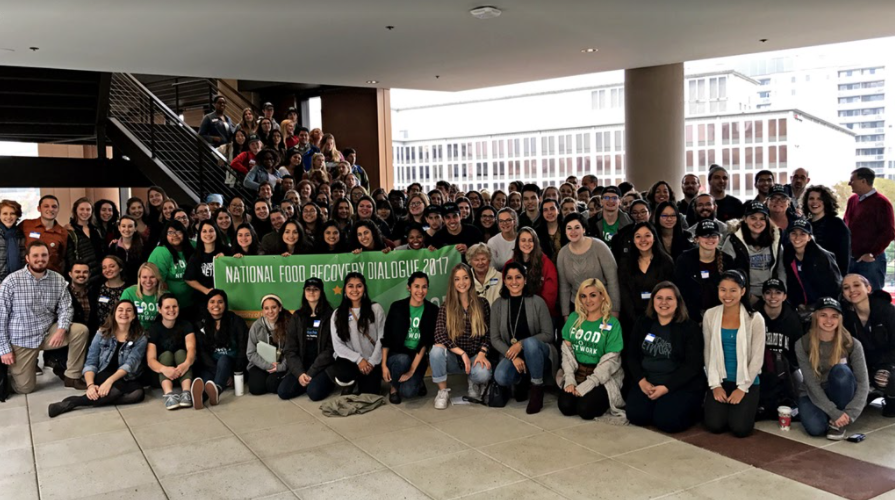I was at one of the sessions of FRN’s 2017 national conference, hosted by the University of the District of Columbia (UDC), when I remember thinking, “this is an important moment.” This moment came when students from UDC were speaking with a room full of about 100 of FRN’s student leaders who had come to the US capital for a weekend of learning. The incredible students at UDC had captured the audience’s passion and desire to act as they shared why and how they organized their own student food pantry at UDC to support their fellow students experiencing hunger. It was one of those unanticipated moments that we couldn’t ever have planned for as we organized the conference.
Have you ever been in a room full of people who were captivated by what they were hearing? It was incredible to witness as the UDC students explained why they decided their school needed a student food pantry. The students of UDC were very similar to the undergraduates of my alma mater, the University of Maine at Augusta: students who held jobs, mostly full-time jobs, who had families they support, and who took on the expense and time demands of higher education to better their lives and the lives of their families. The student leaders at UDC shared stories about their families, their church service, and their majors at UDC, and like so many higher ed students in the US, they shared that they too sometimes struggled to pay for food because other expenses took precedence. The student food pantry was a way to ease the worry and stress and physical torment of not having enough while you strove to achieve big things.
FRN’s 2017 National Food Recovery Dialogue, hosted at University of the District of Columbia
Leading up to the 2017 national conference, FRN knew about the growing interest from students in our network in learning how to establish student food pantries on campus. We had more and more new chapter applications from students across the US that, when asked why they wanted to start a chapter on their college campus, answered “to end student hunger”. According to a 2017 survey of 43,000 undergraduate students conducted by the Hope Center, “36% of university students were food insecure in the 30 days preceding the survey,” and for community college students, 42% were food insecure. By 2021, The Hope Center’s survey of roughly 195,000 students revealed a food insecurity rate of 34% across 2 and 4 year institutions. I highly recommend reading The Hope Center’s report because it speaks to many of the same challenges that FRN has outlined in our FRN10X strategic framework as we work to ensure the economic security of the 42 million people who are currently food insecure. Like The Hope Center and FRN10X, research from our partner the National Association of REALTORS® also highlights the link between food insecurity and the economic security needed to access other basic rights such as housing.
Four years after that conference, I still reflect on the importance of the moment that I was so fortunate to witness. That moment had ripple effects for FRN’s future that are breaking shore right now. At FRN, we call the efforts of our student leaders to make positive change in their local communities the student effect. That student effect is powered by volunteering: giving your time, your skills, and your desire to help solve immediate problems, and to contribute to the long-term solutions to eradicate those problems. The student leaders at UDC imparted their skills, their approach, and their knowledge to a group of students who saw and experienced the same issues on their own college campuses across the US. The ripple effect of those volunteer UDC students who took the time out of their packed schedules to teach all of us how to start a campus food pantry or to improve budding pantry initiatives is felt to this day when more students can now access the food they deserve on their college campus. This is what I mean when I talk about the power that we all have to make positive change.
I want to dedicate this writing to all of our student volunteers across the US who work each and every day, during the mornings, evenings, on weekends, and throughout a global pandemic to feed their fellow students and community members in need. In particular, to those student volunteers who teach others how to build and improve systems that allow us to increase our impact to feed more people, faster: you are seen and you are appreciated more than you will know.


